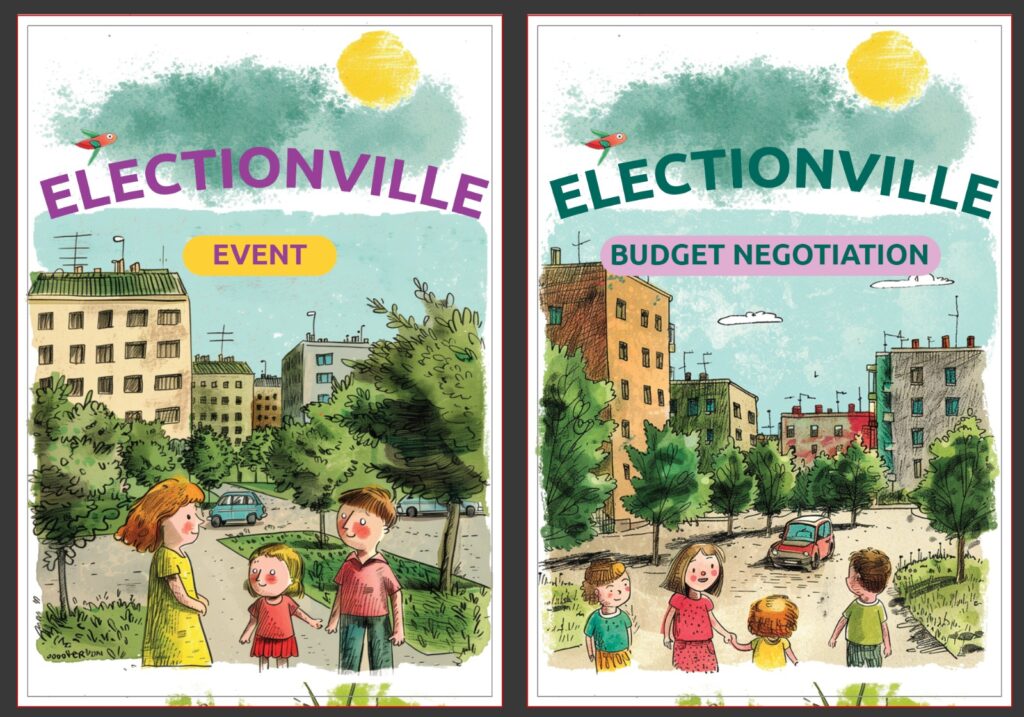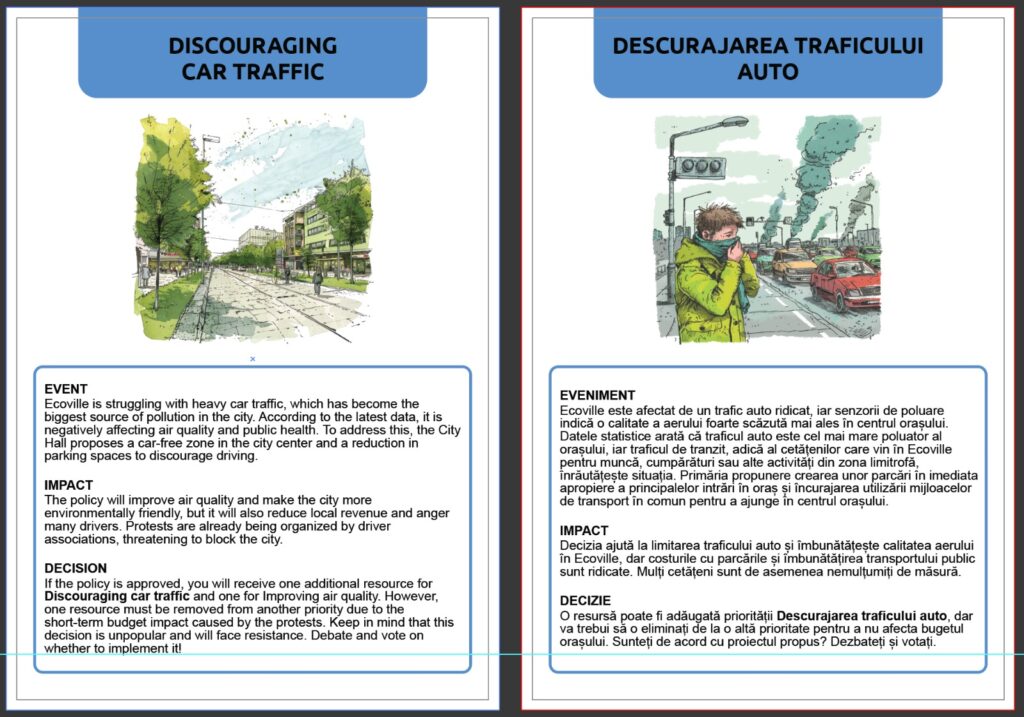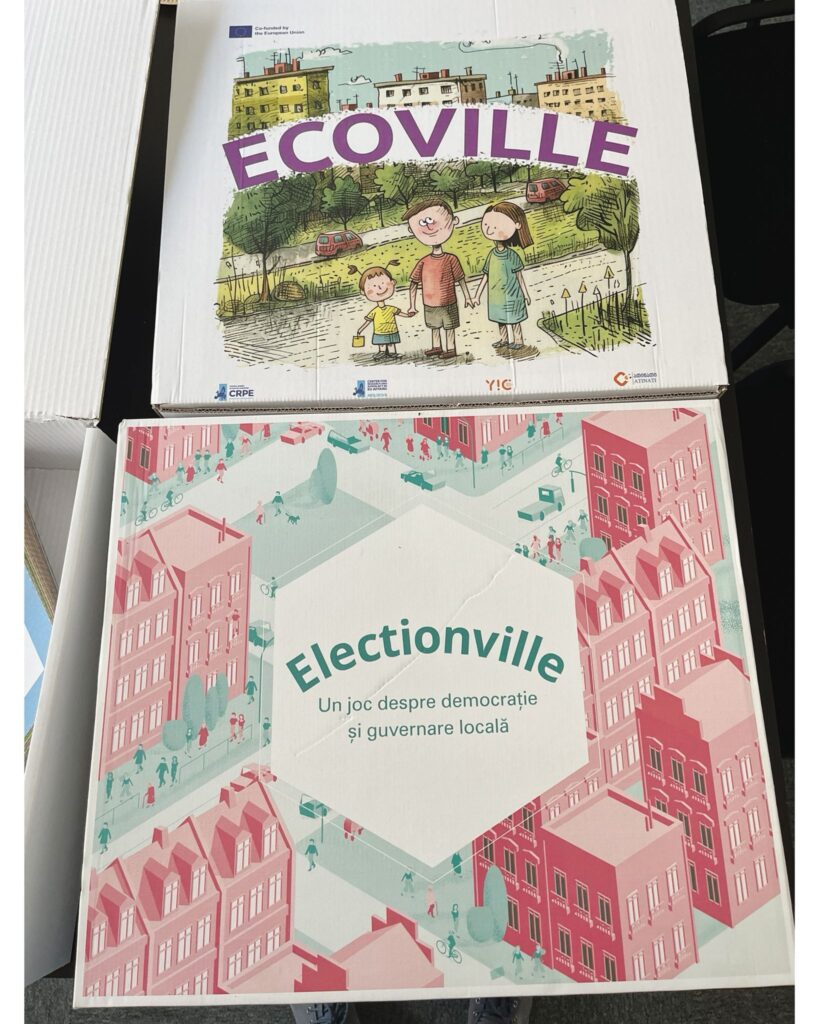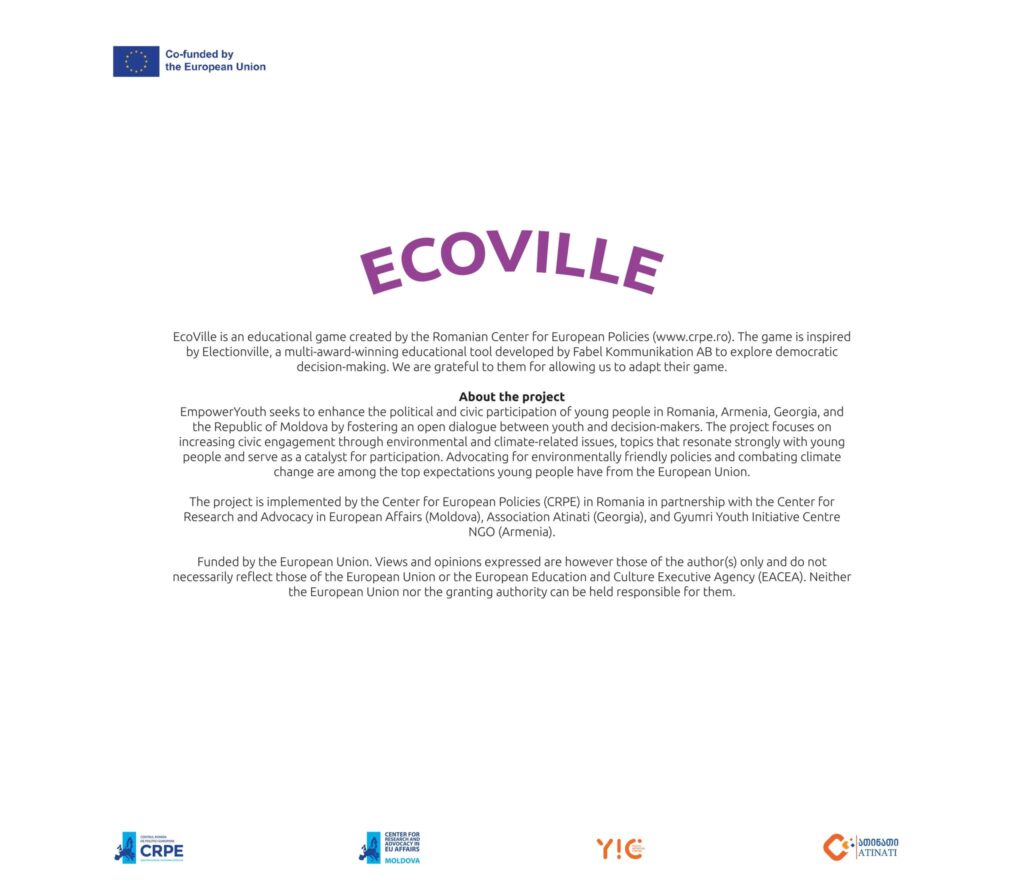EcoVille is an educational game developed by the Romanian Center for European Policies where you become a member of the local council and make important decisions for the future of your city. You will represent an imaginary political party and, together with other players, you will find solutions for challenges related to the environment, resources and community well-being. The player who successfully allocates the most resources to their priority areas through arguments, debates, and negotiations with other players will be the winner of the game.
We would like to thank the Embassy of Sweden in Bucharest and Fabel Kommunikation AB for allowing us to adapt their game Electionville and for providing us with dozens of copies of the game, which we distributed to schools across Romania.
How to Play EcoVille
EcoVille was developed as part of a project funded by the European Union and is available in English, Romanian, Georgian, and Armenian.
During the game, you will:
-
Manage the city’s limited resources.
-
Decide which issues are most important for your city.
-
Take part in debates and negotiations.
-
Build alliances and adapt your strategy as situations change.
Your goal? To build a balanced city where citizens are happy and the environment is protected. Along the way, you will discover how complex, interesting, and challenging sustainable local governance can be.
-
Game duration: 90–120 minutes
-
Number of players: 3–6 (each party may have multiple members)
Game Structure
-
The game unfolds over a set number of rounds.
-
Each round represents one election year in the local council’s mandate.
-
The total number of rounds depends on the length of the mandate (3, 4, or 5 election years).
The game is distributed free of charge by the Romanian Centre for European Policies and its partner organizations as part of the Empoweryouth project. For more information, please contact us at office@crpe.ro.
Funded by the European Union. The views and opinions expressed are solely those of the author(s) and do not necessarily reflect those of the European Union or the European Education and Culture Executive Agency (EACEA). Neither the European Union nor the granting authority can be held responsible for them.




